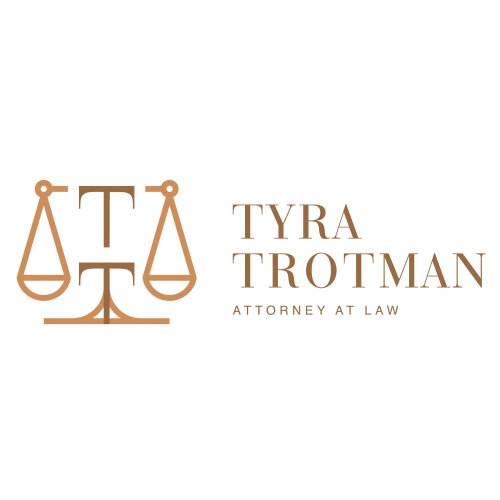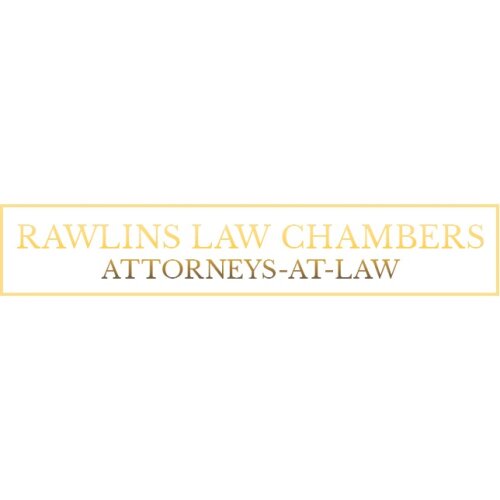Best Climate Change Law Lawyers in Barbados
Share your needs with us, get contacted by law firms.
Free. Takes 2 min.
Or refine your search by selecting a city:
List of the best lawyers in Barbados
About Climate Change Law in Barbados
Climate Change Law in Barbados is a growing and dynamic legal field that addresses the country's response to the global challenge of climate change. It encompasses a range of legal frameworks and policies that govern activities affecting the environment, with the goal of reducing greenhouse gas emissions, promoting climate resilience, and supporting sustainable development. Barbados, as a Small Island Developing State (SIDS), is particularly vulnerable to the impacts of climate change, including rising sea levels, extreme weather events, and coral reef degradation. As a result, local laws and international commitments guide both government action and private conduct in relation to climate change impacts and adaptation.
Why You May Need a Lawyer
People in Barbados may need legal advice or representation in Climate Change Law for various reasons. Common situations include:
- Understanding how new environmental regulations affect businesses, especially those in tourism, agriculture, and construction
- Resolving disputes involving land use, coastal zone management, or environmental permits
- Navigating government incentives or requirements relating to renewable energy projects
- Seeking compensation for damages caused by climate-related events or government actions
- Ensuring compliance with both local and international environmental obligations, such as those under the Paris Agreement
- Participating in public consultations or advocacy related to climate change policymaking
- Addressing corporate responsibilities for reducing carbon footprints and disclosing climate risks
Local Laws Overview
Several key legal frameworks shape the regulation of climate change issues in Barbados:
- The Climate Change and Disaster Risk Management Bill sets the foundation for Barbados's coordinated response to climate change and disaster risk management, including establishing the necessary institutional structures and regulatory powers.
- The Environmental Management Act provides for the protection, conservation, and improvement of the environment, dealing with pollution control, permissible activities, and environmental impact assessments.
- The Coastal Zone Management Act specifically protects the coastline from erosion and degradation, regulating development in sensitive coastal areas to increase resilience to sea level rise and extreme weather.
- The Renewable Energy Rider and Integrated Resource Planning Framework support the national transition toward renewable energy sources, offering guidance for energy companies and individuals investing in solar, wind, or other sustainable energy solutions.
- International Agreements such as the Paris Agreement and the United Nations Framework Convention on Climate Change (UNFCCC) bind Barbados to take certain actions, with domestic laws often reflecting these obligations.
Together, these laws and policies require individuals, businesses, and government agencies to consider the impact of their activities on the climate and local environment, and to act in ways that promote adaptation and mitigation.
Frequently Asked Questions
What is Climate Change Law?
Climate Change Law refers to the legal principles and regulations that aim to address and manage the causes and effects of climate change. In Barbados, this includes statutes on environmental protection, coastal management, renewable energy, and disaster risk reduction.
Who is responsible for enforcing Climate Change Law in Barbados?
Enforcement is typically carried out by government agencies such as the Ministry of Environment and National Beautification, the Environmental Protection Department, and the Coastal Zone Management Unit.
Are there penalties for violating climate and environmental laws?
Yes, penalties can include fines, orders to remedy environmental damage, and in severe cases, criminal charges. The specific penalty depends on the law violated and the severity of the infraction.
Can businesses be required to change their operations under Climate Change Law?
Yes, businesses may need to comply with regulations related to carbon emissions, waste management, coastal development, and renewable energy adoption. There are also incentives for businesses going green.
What rights do communities have in relation to climate policy decisions?
Communities can often participate in public consultations and hearings, especially when new developments or policy changes might impact their environment or livelihood.
How does Climate Change Law affect property development?
Developers must often conduct environmental impact assessments and obtain permits, especially for projects near the coast or in sensitive ecosystems. Failure to comply can halt projects or result in penalties.
What financial incentives are available for renewable energy initiatives?
Government programs may provide tax credits, rebates, or priority access to the energy grid for qualifying renewable energy installations, encouraging both private and commercial investment in green technology.
Is Barbados part of any international climate change agreements?
Barbados is a signatory to key international agreements like the Paris Agreement, and these commitments influence national and sector-specific climate policies.
Can individuals or groups take legal action to protect the environment?
Yes, individuals and groups can challenge unlawful activities or government actions that threaten the environment, often through judicial review or public interest litigation.
Do building codes in Barbados address climate resilience?
Yes, building codes and planning laws increasingly incorporate requirements for structures to withstand extreme weather and rising sea levels, in line with national climate resilience strategies.
Additional Resources
If you require more information or assistance regarding Climate Change Law in Barbados, consider the following resources:
- Ministry of Environment and National Beautification
- Barbados Environmental Protection Department
- Coastal Zone Management Unit
- Barbados Bar Association
- Caribbean Community Climate Change Centre
- University of the West Indies, Cave Hill Campus - Faculty of Law (environmental law research and outreach)
Next Steps
If you need legal advice or representation related to Climate Change Law in Barbados, here are some steps to consider:
- Identify the specific issue or question you have, such as compliance, development, or compensation for climate-related harm
- Gather relevant documents, such as permits, correspondence, or government notices
- Contact a lawyer who specializes in environmental or climate change law. The Barbados Bar Association can provide referrals
- Consult with the appropriate government agency if your issue involves regulations or public procedures
- Participate in public consultations if your concern relates to new policies or community impacts
- Stay informed about changes to local laws and international commitments that may affect your case
Early legal advice can help you understand your rights, avoid penalties, and successfully navigate complex climate-related legal matters. Do not hesitate to seek assistance to ensure your interests are protected under Barbados's evolving climate change legal landscape.
Lawzana helps you find the best lawyers and law firms in Barbados through a curated and pre-screened list of qualified legal professionals. Our platform offers rankings and detailed profiles of attorneys and law firms, allowing you to compare based on practice areas, including Climate Change Law, experience, and client feedback.
Each profile includes a description of the firm's areas of practice, client reviews, team members and partners, year of establishment, spoken languages, office locations, contact information, social media presence, and any published articles or resources. Most firms on our platform speak English and are experienced in both local and international legal matters.
Get a quote from top-rated law firms in Barbados — quickly, securely, and without unnecessary hassle.
Disclaimer:
The information provided on this page is for general informational purposes only and does not constitute legal advice. While we strive to ensure the accuracy and relevance of the content, legal information may change over time, and interpretations of the law can vary. You should always consult with a qualified legal professional for advice specific to your situation.
We disclaim all liability for actions taken or not taken based on the content of this page. If you believe any information is incorrect or outdated, please contact us, and we will review and update it where appropriate.
Browse climate change law law firms by city in Barbados
Refine your search by selecting a city.












